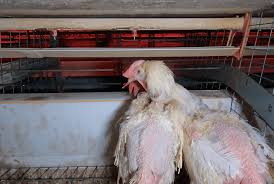Understanding the Risks of Bird Flu in the UK

Introduction
Bird flu, also known as avian influenza, is a viral infection that primarily affects birds but can occasionally infect humans and other animals. Recent outbreaks across Europe have raised significant concerns among health officials and the public alike. The relevance of monitoring bird flu is paramount not just for avian health, but also because of its potential to impact human health and the poultry industry, which is a vital sector of the UK economy.
Recent Developments
The UK has seen multiple outbreaks of bird flu in both wild and domesticated birds in recent months. The most prevalent strain, H5N1, has been particularly virulent, leading to the culling of thousands of infected birds as a preventive measure. According to the Department for Environment, Food & Rural Affairs (DEFRA), several cases have been reported in England, Scotland, and Wales, heightening biosecurity measures for commercial poultry farms.
As of October 2023, the Animal and Plant Health Agency (APHA) has noted an increase in the number of reported cases, prompting authorities to declare high-risk areas where tighter restrictions are being enforced. Bird keepers are urged to minimize interaction with wild birds, and precautions such as enhanced cleaning protocols and regular health monitoring of flocks are recommended. Additionally, the public has been advised to report any unusual bird deaths to relevant wildlife authorities.
Implications for Human Health
Though the transmission of bird flu to humans remains rare, events in recent years where individuals have contracted severe forms of the virus have underscored its potential risks. Health officials are monitoring the situation closely, as mutations in the virus could lead to more severe outbreaks among humans. The World Health Organization (WHO) continues to recommend heightened surveillance and research into the nature of this virus.
Conclusion
The upsurge in avian influenza cases presents a multifaceted threat that requires continued vigilance. While immediate impacts may be felt predominantly in the agricultural sector, potential risks to human health must not be overlooked. Forecasts predict that as climate change alters migratory patterns of wild birds, we may see more frequent and varied outbreaks. Therefore, it is essential for bird owners, farmers, and the general public to remain informed about bird flu, adhere to biosecurity measures, and support ongoing research and monitoring efforts.









